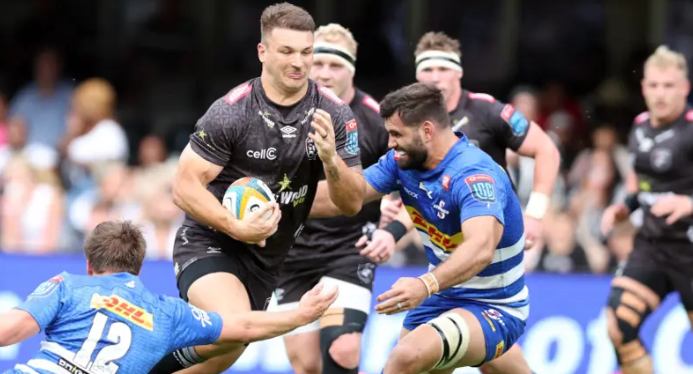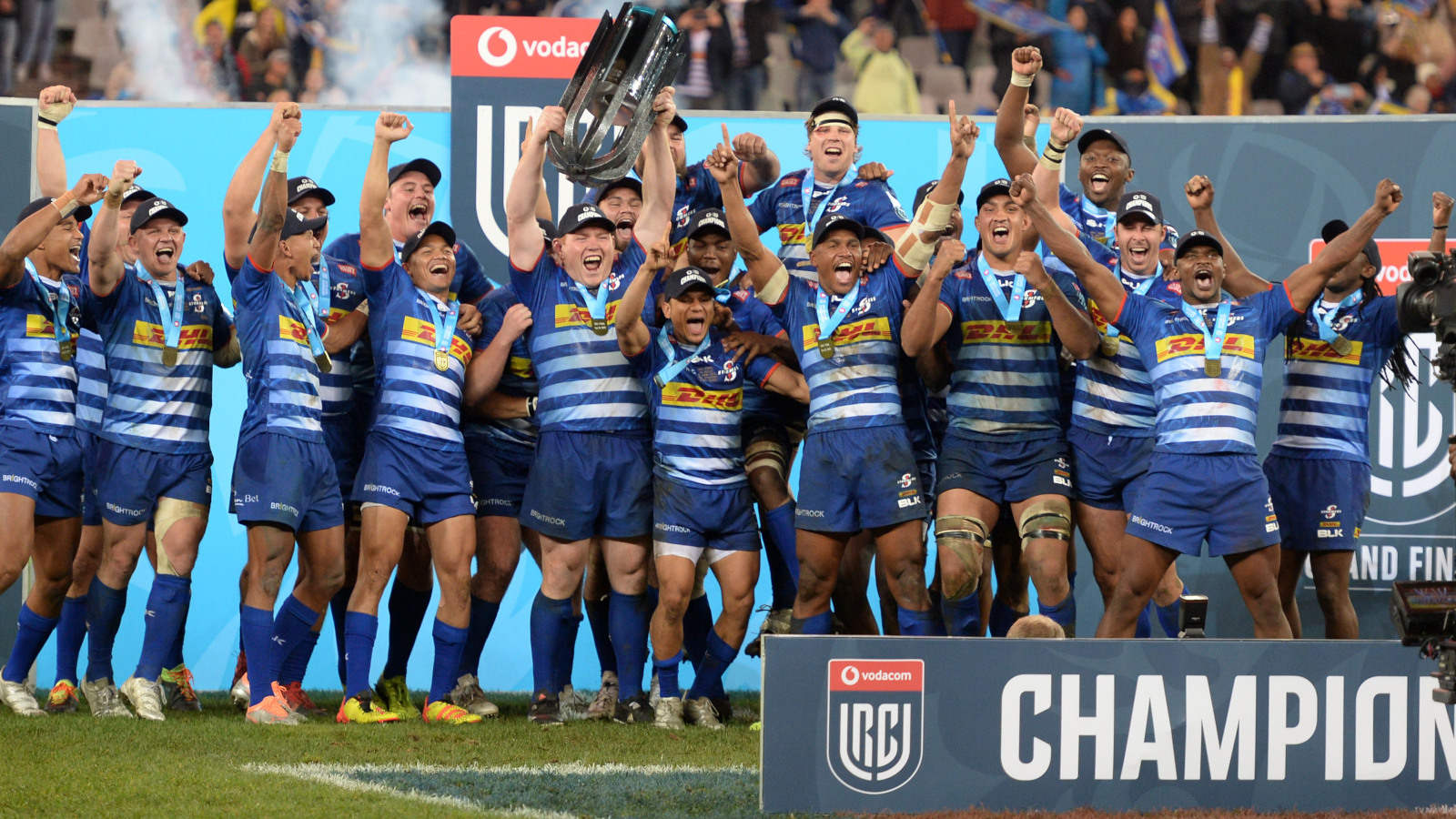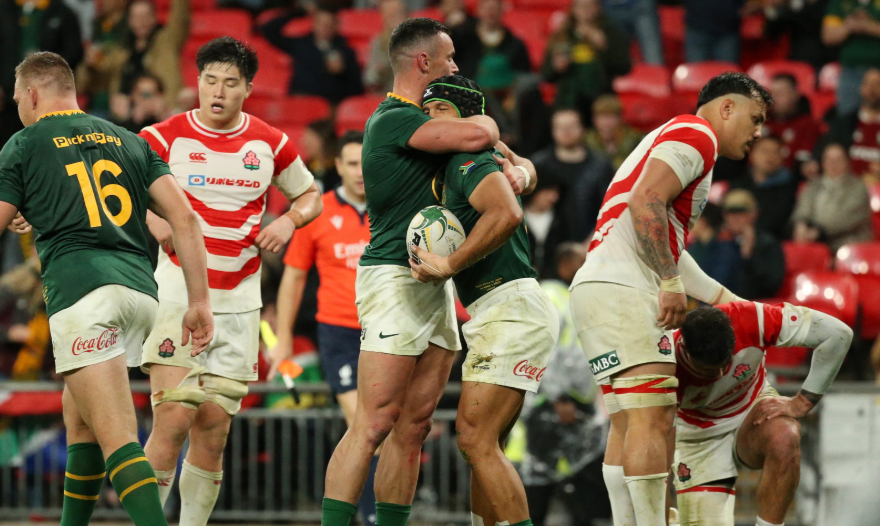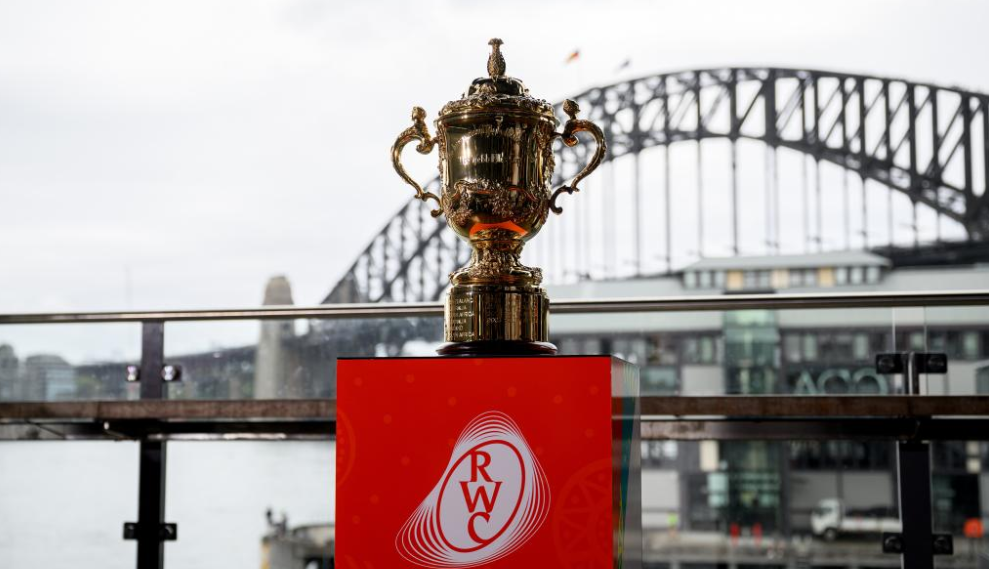The inaugural South African derby of the Vodacom United Rugby Championship (URC) season underscored the heightened intensity and fervent interest that erupts when local powerhouses clash. This match not only highlighted the deep talent pool available to the reigning world champions, the Springboks, but also showcased the competitive spirit inherent in South African rugby.

Held in the humid environment of Durban’s Kings Park, the game between the DHL Stormers and the Hollywoodbets Sharks was emblematic of the gritty, hard-fought encounters typical of South African derbies. The Stormers, despite creating numerous scoring opportunities, were hampered by an inability to convert these chances against a resolute and aggressive Sharks defense. The Sharks, known for their tenacious defensive strategies, effectively neutralised the Stormers’ offensive plays, leading to a scrappy yet engaging match.
The challenging conditions at Kings Park, characterised by high humidity and a slippery ball, made attacking rugby particularly difficult. Both teams employed aggressive defensive systems, which, when combined with the physicality expected in such high-stakes matches, resulted in a tightly contested game that rivaled test match standards. Moments of exceptional skill and strong running were interspersed with the customary physical battles, adding layers of excitement and demonstrating the high calibre of play on display.
Aphelele Fassi, now a frontline Springbok fullback, emerged as the standout performer, earning another well-deserved man of the match accolade. However, it was the contributions of fringe players within Rassie Erasmus’ Springbok system that made significant impacts. Notably, Neethling Fouche of the Stormers posed considerable challenges for Ox Nche, a role typically dominated by top international tightheads. Fouche’s performance illustrated the depth of talent available to South African rugby, emphasising that even players outside the regular Springbok selection can perform at an elite level.
The scrum dynamics in the match revealed deeper strategic elements. Ox Nche’s subdued performance could be attributed to the absence of Bongi Mbonambi, regarded by Eben Etzebeth as the world’s best scrummaging hooker. Joseph Dweba of the Stormers, despite certain shortcomings, showcased his strength as a scrummaging hooker, potentially ranking just below Mbonambi locally. This scenario highlights the competitive environment within South African rugby, where even world-class players like Fouche are part of a robust talent hierarchy.
The game also featured emerging talents such as Ben-Jason Dixon, who drew comparisons to World Rugby Player of the Year Pieter-Steph Du Toit, and Ethan Hooker and Suleiman Hartzenberg, promising young centres poised for significant futures. These performances underscore the depth and potential of South African rugby, suggesting a bright future for both club and national teams.
Beyond individual performances, the derby has broader implications for the URC’s South African teams. The upcoming derby phase, extending into the festive season and early next year, is critical for the aspirations of the four South African sides competing. The Bulls, who secured a victory against Connacht away, emerged as local winners, while the Emirates Lions faced setbacks. The next fixtures, including the Bulls’ home game against the Sharks and subsequent high-stakes matches, are pivotal moments that could determine the trajectory of the teams’ seasons.
The Kings Park derby also revitalised local interest in South African rugby, countering recent trends of lower attendance and waning enthusiasm. Previously, Cape Town had been the marquee venue, but the electrifying atmosphere in Durban is set to boost engagement and fan support across the board. This resurgence is essential for maintaining the sport’s popularity and ensuring competitive performances throughout the URC season.
As the derby phase progresses, the outcomes of these intense local clashes will significantly influence the standings and future prospects of the South African teams. Derbies often act as equalisers, potentially disrupting the campaigns of favored teams and providing opportunities for underperforming squads like the Stormers to re-enter contention. The strategic importance of these matches cannot be overstated, as they not only determine immediate results but also shape the overall narrative of the season.
In conclusion, the first South African derby of the URC season was a testament to the robust talent and competitive spirit within South African rugby. The match highlighted both individual brilliance and collective resilience, reinforcing the depth available to the Springboks. As the season advances, the forthcoming derby clashes will continue to play a crucial role in defining the success and legacy of the South African teams in the United Rugby Championship.




